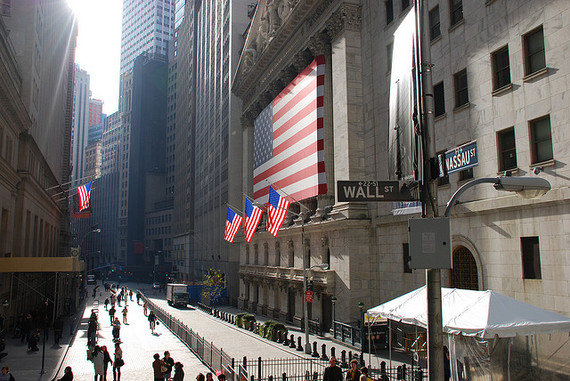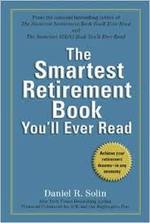 Photo courtesy of Flickr.
Photo courtesy of Flickr.
I agree with the glowing reviews of The Big Short. The film does a wonderful job of exposing the mendacity of the financial industry and the role it played in almost causing a worldwide economic collapse.
Its depiction of Wall Street as infested with greed, devoid of ethics and indifferent to the real-life consequences of its conduct on Main Street Americans was spot on.
Lessons learned
Nevertheless, I felt a profound sadness as I exited the theater. I agree with The New York Times reviewer who noted the film "offers no solutions, and no comfort. The best it can do is put down a marker."
It's not for lack of effort. At the end, the film raises the ominous possibility that this sordid history is about to repeat itself. An article in Bloomberg notes that Goldman Sachs, together with other banks, is selling a new investment it calls a "bespoke tranche opportunity." The article explains that these investments are "essentially a CDO backed by single-name credit-default swaps, customized based on investors' wishes. The pools of derivatives are cut into varying slices of risk that are sold to investors such as hedge funds."
Sound familiar?
This investment has much in common with collateralized debt obligations (CDOs), which fell into disrepute as a primary cause of the financial crisis. "Bespoke tranche opportunities" appear to be similar in concept. The change in name is simply a marketing ploy.
These new investments will no doubt be sold successfully to gullible investors, pension plans and endowments who believe this pitch in a Goldman Sachs email cited by Bloomberg: "A tranche of a bespoke portfolio of credits can offer exposure to diversified risk with the possibility of leverage, credit enhancement and enhanced returns." Really?
Whether or not that rosy assessment turns out to be correct remains to be seen. What is certain is that Wall Street will profit handsomely from the sale of these "investments," regardless of how they actually perform.
Obscuring conflicts of interest
I worry that focusing on the cause of the financial crisis and Wall Street's seemingly endless proclivity to create complex investments will obscure the larger issue. It's that the underlying premise is fatally flawed. Many investors believe their stockbrokers have a legal obligation to put the interest of the investor first. They don't understand the inherent conflict of interest that comes with permitting stockbrokers to sell investment products that generate higher fees as long as those investments are deemed "suitable." Stockbrokers are under no obligation to advise their clients that lower-fee investments, with higher expected returns, are available.
"Investing" in Congress
It gets worse.
In my view, the goal of Wall Street -- under the guise of "managing" your money -- is to maximize the transfer of your assets to itself and to avoid regulation that would hinder its attempt to do so. It succeeds in these efforts through massive contributions to congressional campaigns. In 2014, the Securities Industry and Financial Markets Association (SIFMA), a securities industry trade group, was the top contributor on Wall Street to these campaigns, "investing" more than $7.4 million.
Whatever you may think of the ethics of Wall Street, no one disputes its ability to understand how to get a return (for itself) on its investments. Politicians know what is expected of them. If they fail to deliver, they can expect their opponents to receive this funding in the next election.
The biggest lie
Whether or not new shenanigans by Wall Street will precipitate another financial crisis is an open question. It certainly doesn't appear that lessons have been learned from the last go-around.
What is certain is this: Wall Street will continue to perpetuate the myth that it has the ability to "beat the market" through stock picking, market timing and fund manager selection.
Here's what Wall Street doesn't want you to know and is terrified you will find out. Only about 2 percent of active fund managers generate statistically significant "alpha" (excess returns over their risk-adjusted benchmark). There's no reliable way to identify these fund managers prospectively. Even if you could do so, once the impact of taxes is taken into account, it is unlikely even these funds would beat the after-tax returns of low-management-fee index funds.
As my colleague, Larry Swedroe, noted, active management is "the triumph of hype, hope and marketing over wisdom and experience."
The takeaway
No objective person who reads my books and those written by authors like Larry Swedroe, John Bogle, Burton Malkiel, William Bernstein and many others would continue to be seduced by the marketing hype of Wall Street. Movies like The Big Short do a great job of exposing the underlying greed that pervades the industry. But don't be fooled. While the financial crisis dealt a devastating blow to the retirement dreams of many, it pales in comparison to the daily plundering of assets that occurs when investors listen to the recommendations of those who claim an ability to "beat the market."
There is a way to "win" as an investor. It starts with the realization that doing business with "market-beating" stockbrokers and advisors is designed to enhance their retirement at your expense.
--
 Dan Solin is a New York Times bestselling author of the Smartest series of books, including The Smartest Investment Book You'll Ever Read, The Smartest Retirement Book You'll Ever Read and his latest, The Smartest Sales Book You'll Ever Read.
Dan Solin is a New York Times bestselling author of the Smartest series of books, including The Smartest Investment Book You'll Ever Read, The Smartest Retirement Book You'll Ever Read and his latest, The Smartest Sales Book You'll Ever Read.
The views of the author are his alone and may not represent the views of his affiliated firms. Any data, information and content on this blog is for information purposes only and should not be construed as an offer of advisory services.
